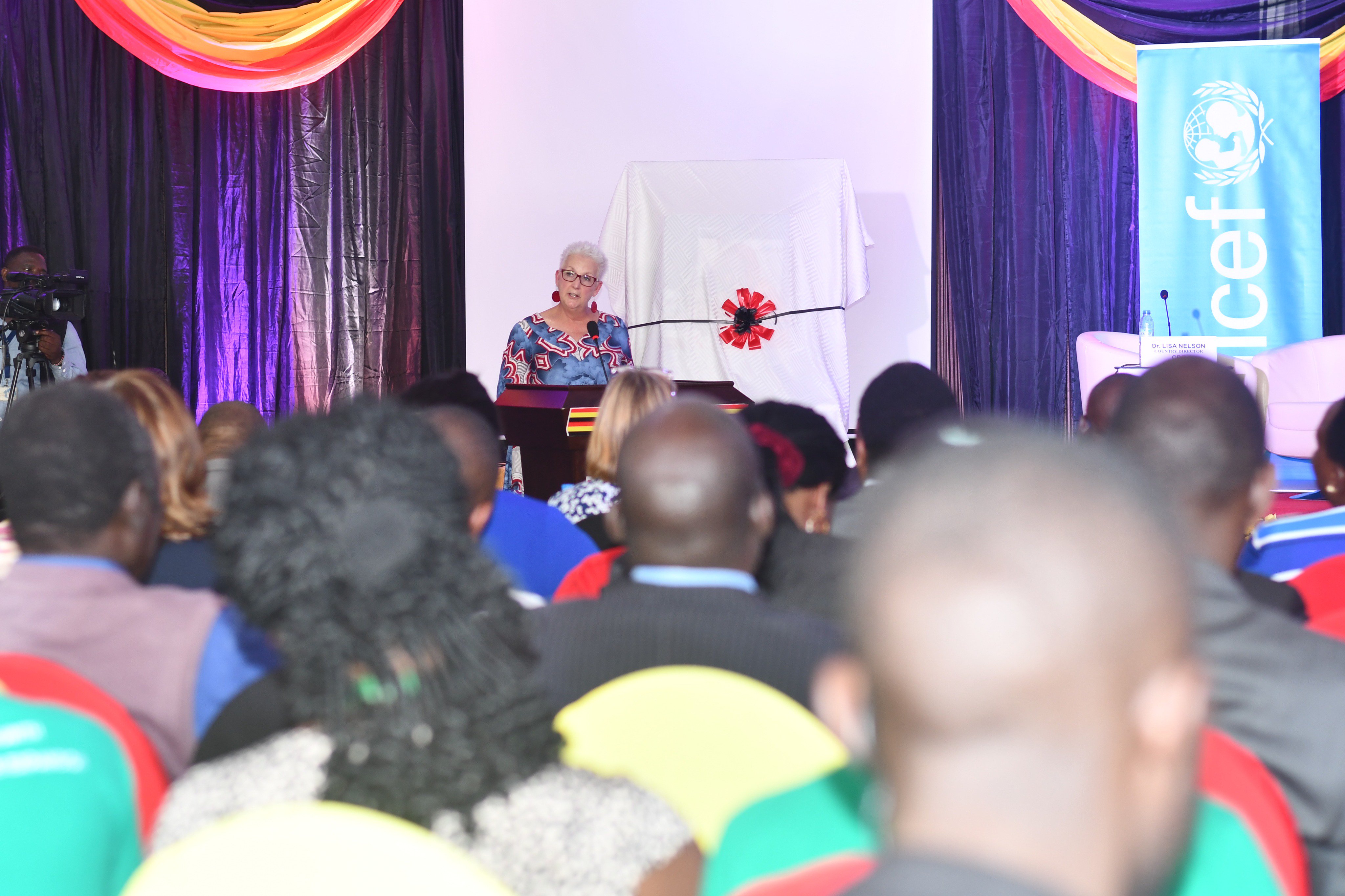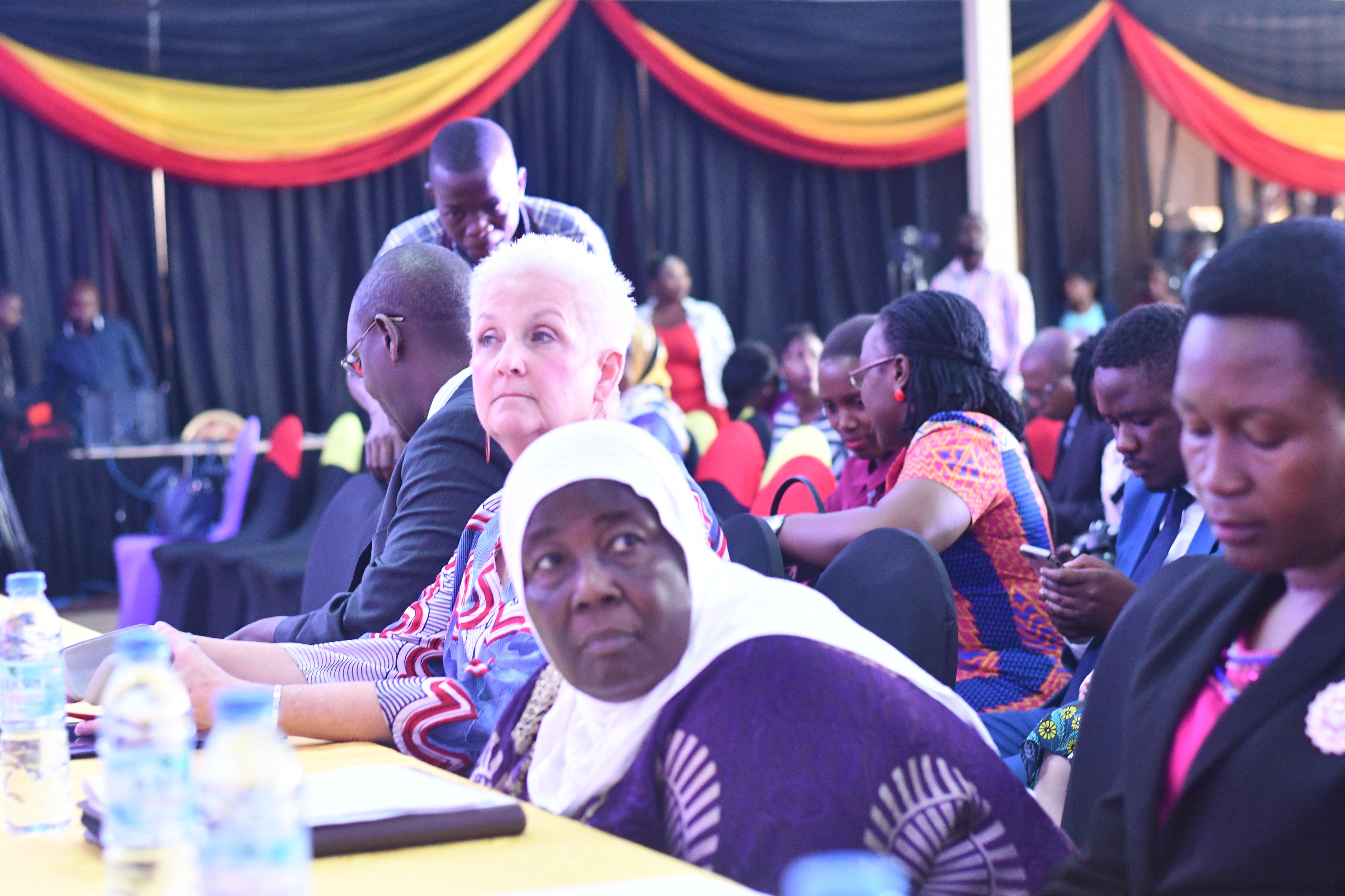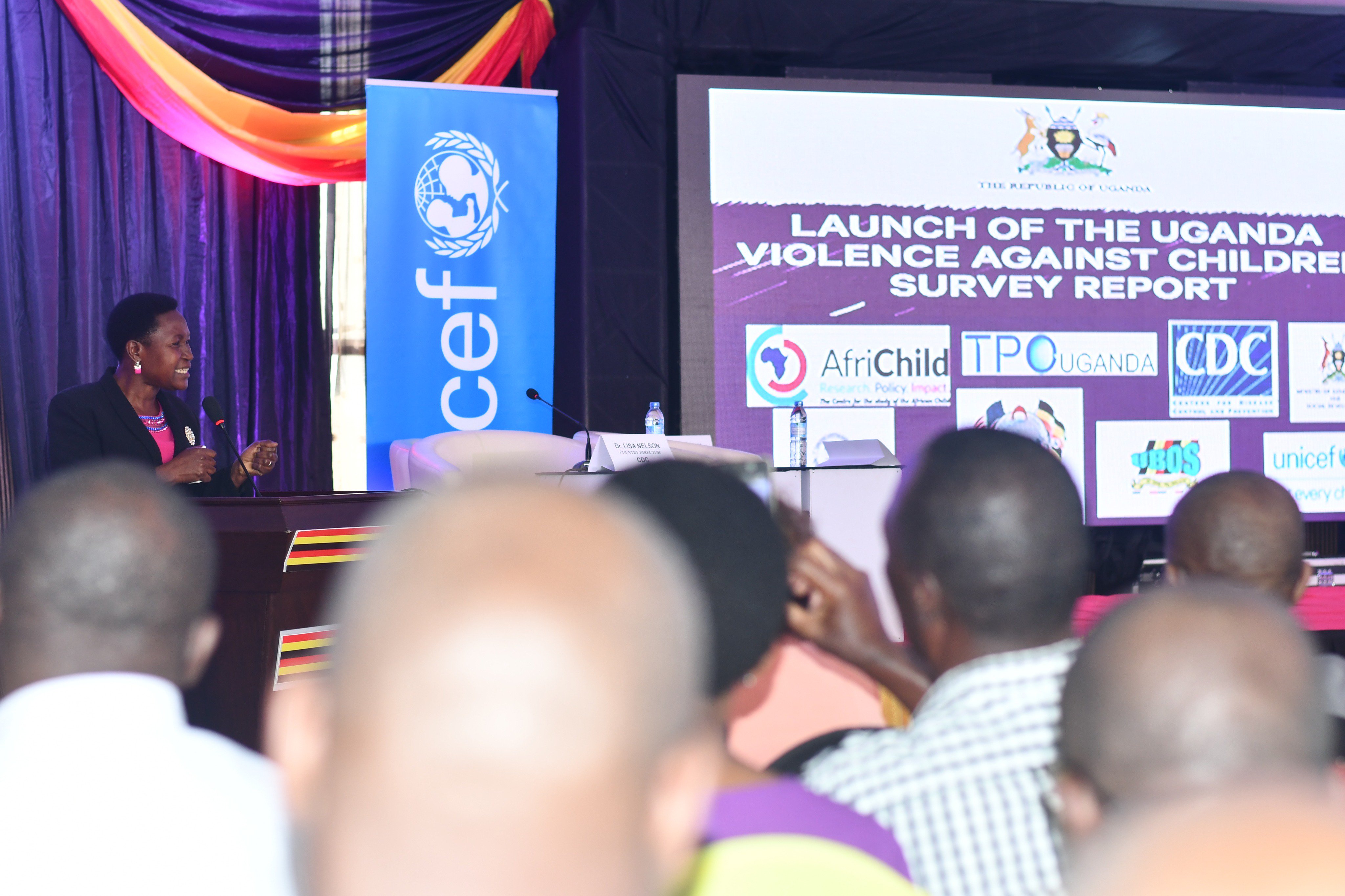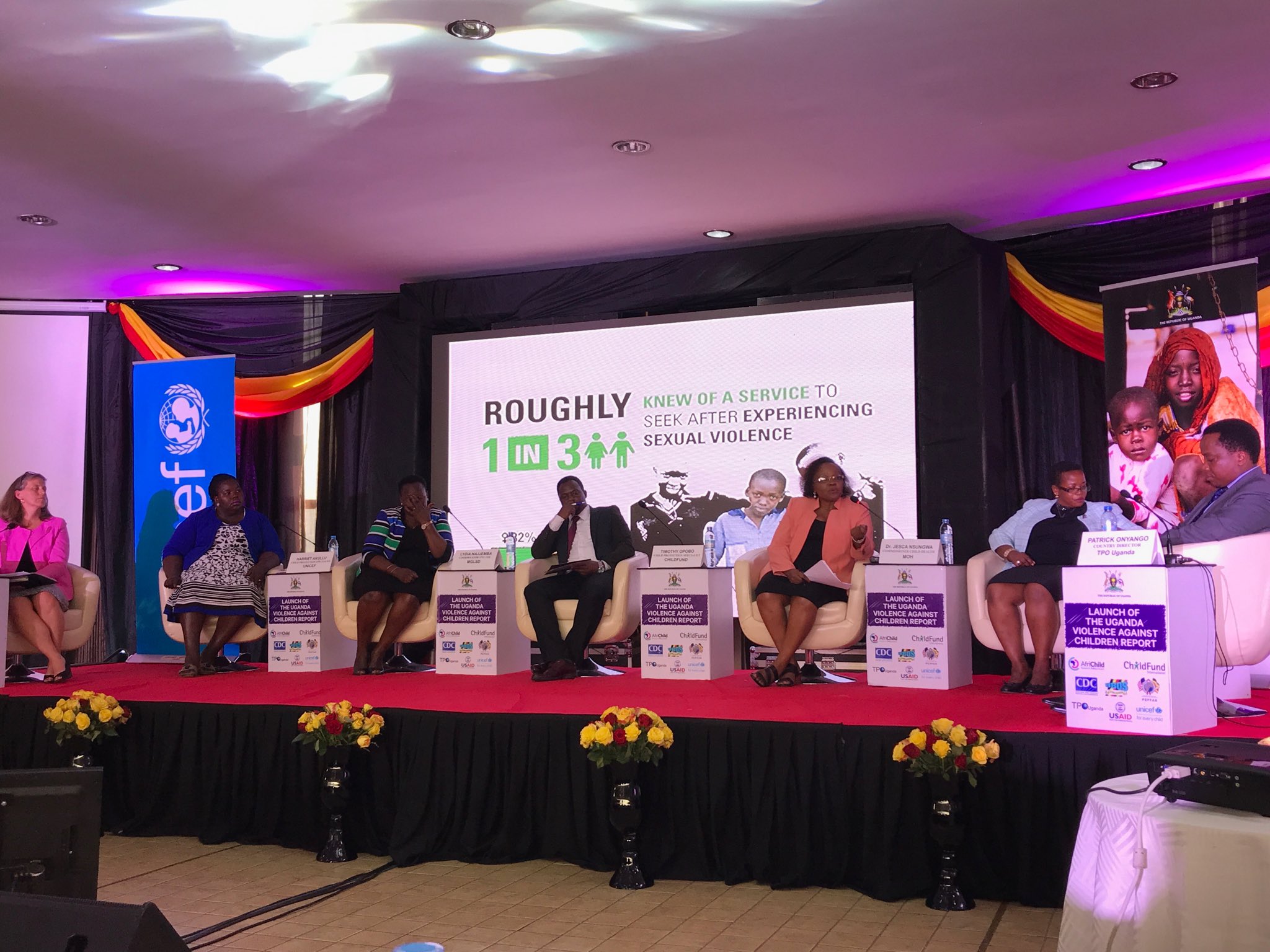The majority of young adults in Uganda, both female and male experienced physical violence during their childhood, a new report has indicated.
Six in 10 females (representing 59%) and seven in 10 males (68%) experienced physical violence during their childhood, with nearly half experiencing it at the hands of parents or adult caregivers.
These are some of the findings in a report that was launched on Thursday by government and other partners. The Uganda Violence Against Children (VAC) Survey focused on the prevalence, nature and consequences of physical, emotional and sexual violence against children in Uganda.
The report states that 3 in 4 young adults experienced some form of violence during childhood.
Majority (94% of females and 86% of girls) of those who suffered physical violence at the hands of an adult, their first experience was nearly always committed by a teacher. One in 4 children missed school after experiencing physical violence.
It is also highlighted in the report that victims of this violence are more likely to become perpetrators of violence against children themselves in the future, fueling an inter-generational cycle of violence in the decades to come.
Regarding sexual violence in particular, the findings weren’t rosy either. Among 18-24 year olds, 1 in 3 females (35%) and one in six males (17%) experienced sexual abuse during their childhood.
Those who experienced sexual abuse during childhood first experienced it at the age of 13 or younger, and the victims of this abuse were found to have experienced higher mental distress than children who weren’t sexually abused.
The U.S Ambassador to Uganda, H.E Deborah Malac who attended the launch at Imperial Royale Hotel described the findings as disturbing.
“As i look through the report, there are very alarming statistics. This is not unusual in many countries where I have served, but I am quite disturbed by the level of violence that is reported by children across the country in Uganda,” the U.S Ambassador commented.
“Children need safe places to be and they are not finding them. And we collectively as a society and those who should be taking care of them are failing them,” she added.
Fewer children who were victims of sexual abuse reported these cases while less than 10% sought help, according to the report.
This, Ambassador Malac said, is a result of stigma which is an indictment to the authorities including Police, the criminal justice system and parents to work hard and strengthen systems so that victims feel safer to report.
“Families and communities, our police officers, folks in the justice system have to remove that stigma. Victims should not be victimized again just because we don’t believe in them,” she said.
According to the recently released Police Annual Crime Report for the year 2017, a total of 15,544 people were victims of domestic violence, of whom 1,213 were children (573 male and 640 female). The same report stated that 15,093 children/juveniles were direct targets/victims of crime in 2017, representing a 1% increase in crimes committed against children in the previous year (2016).
Out of these, 12,152 children were victims of neglect and 1,391 were victims of child abuse/torture.
In her remarks, the Minister for Gender Labour and Social Development, Hajat Janat Mukwaya asked for the stakeholders in the protection of children’s rights to involve the existing leadership structures at the local level in efforts to reduce violence against children.
“There are youth councils, women councils, LC 1 structures which are actually courts and can deal with issues of children. The leaders are there but we are sidelining them. We have left LCs to deal with only land matters, yet children are also part of the village,” the Minister said.
Minister Mukwaya was responding to concerns raised earlier by some of the participants in the discussion who blamed the worrying rate of violence against children on the lack of structures to deal with such issues.
The survey was conducted by the Ministry of Gender, Labour and Social Development with support from AfriChild Centre for Excellence, ChildFund, PEPFAR, Transcultural Psychosocial Organisation Uganda (TPO), Uganda Bureau of Statistics (UBOS), USAID, the U.S. Centers for Disease Control and Prevention (CDC) and UNICEF.
Uganda is the latest among several countries such as Swaziland, Tanzania, Kenya, Zimbabwe, Haiti, Cambodia, Malawi, Nigeria, Zambia, Laos, Rwanda, Botswana, Honduras and El Salvador, that have completed data collection for similar Violence Against Children Surveys.














